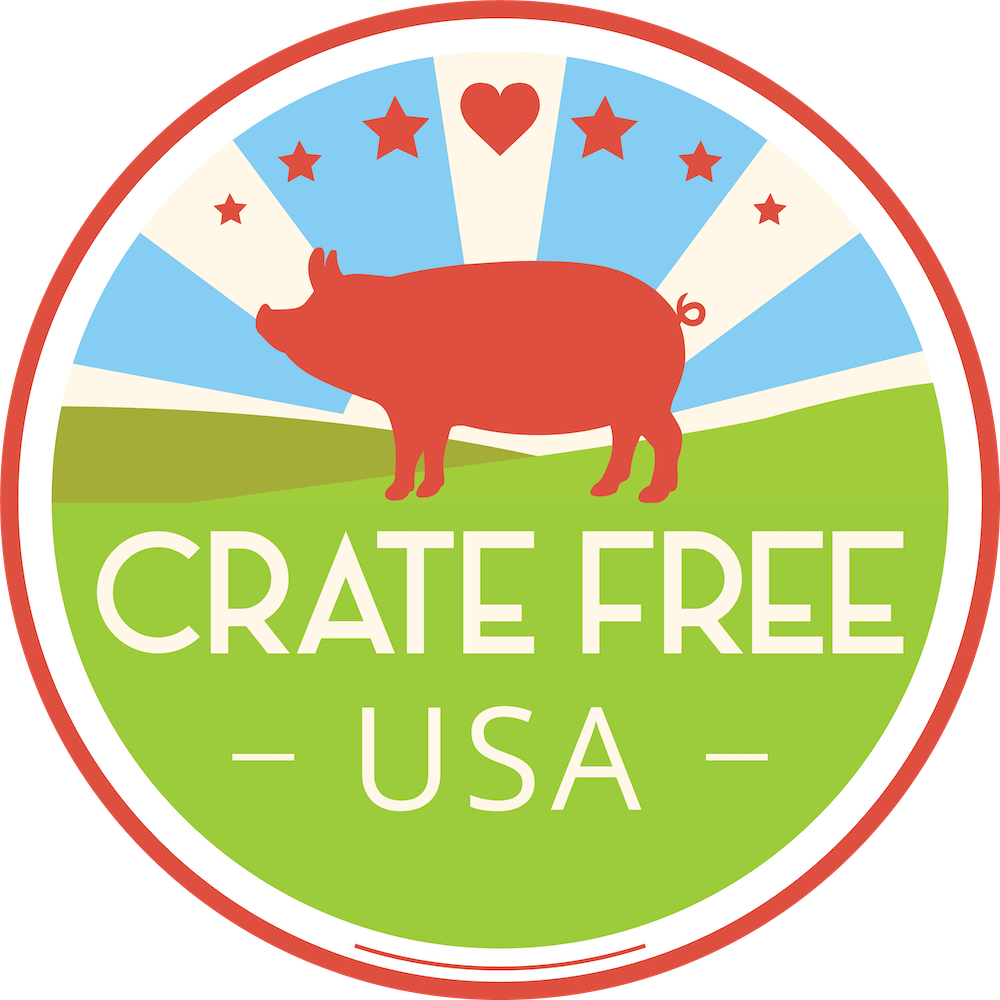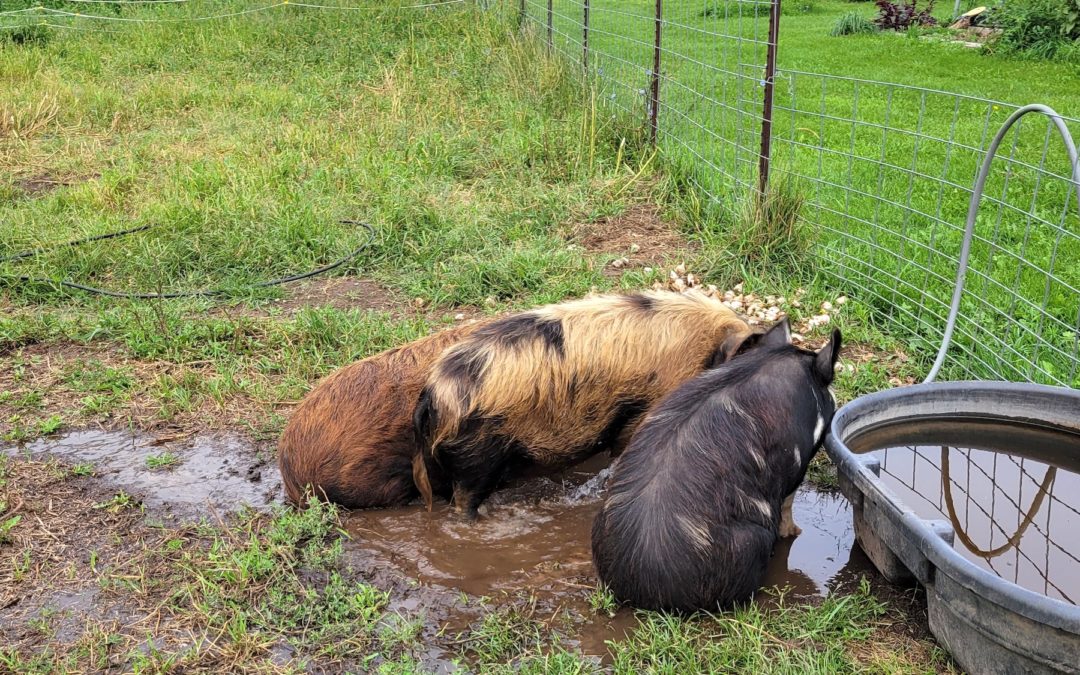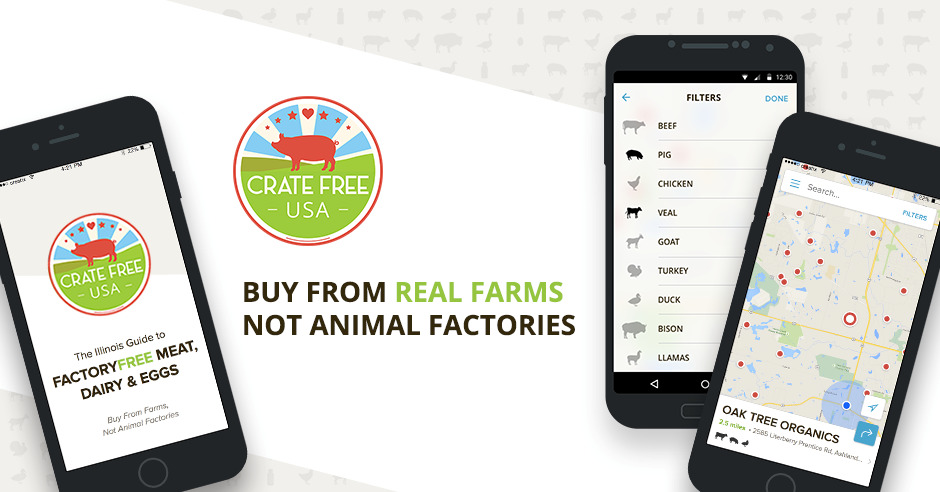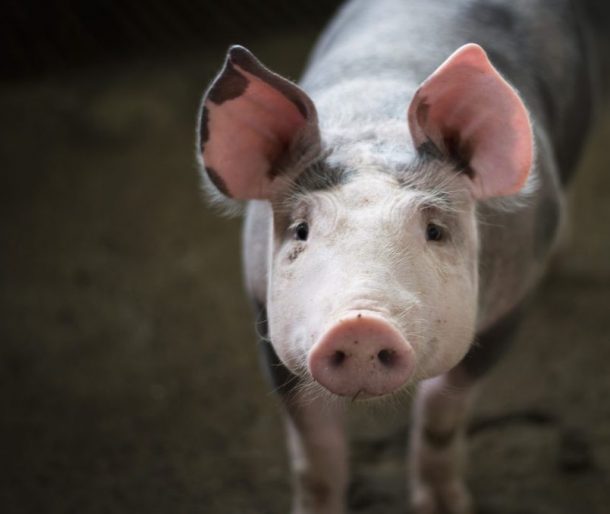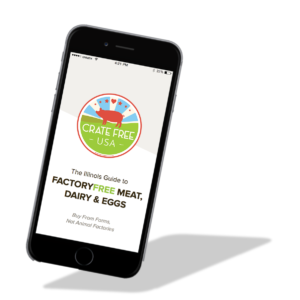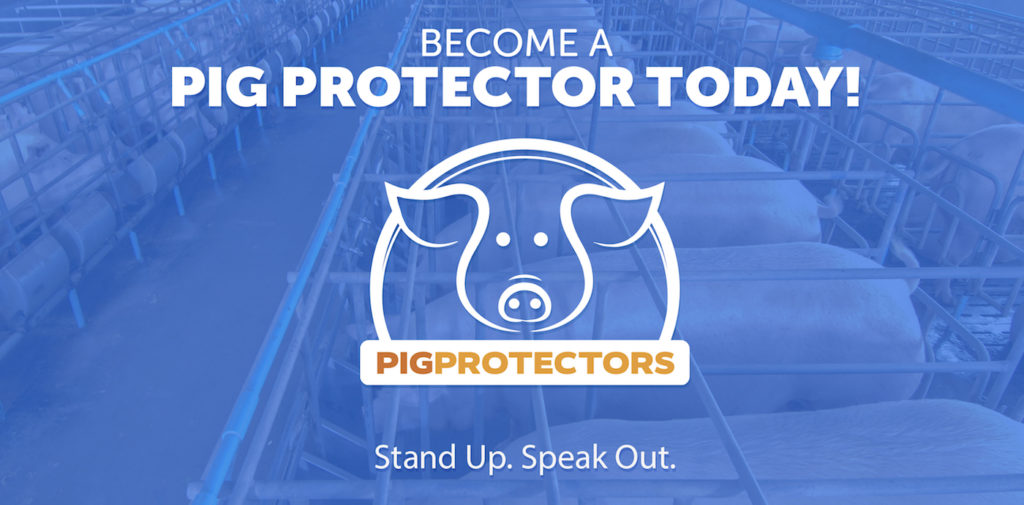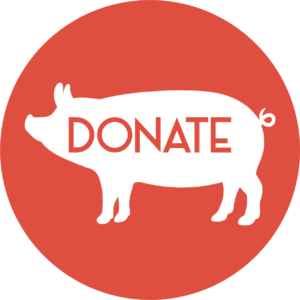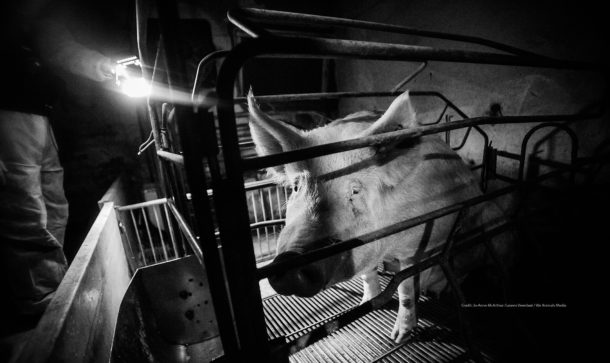At Crate Free USA, our mission is to improve the lives of animals raised for food. And since the vast majority of Americans still eat meat, the best way to do this is to shop from local farmers who care about the animals they raise far more than the huge factory farms and corporations who own so much of the food industry today. While we do promote a reduction of meat in your diet, we also support our local farmers who raise animals more humanely and sustainably.
It’s easy for you to find a local, sustainable farmer near you in Illinois.
Just download our free mobile app!
Andy Hazzard started her farm in 2007. Hazzard Free Farm places sustainability first and foremost. She grows a wide variety of high-quality heirloom grains grown in the organic tradition, without chemicals, they are unbleached, unbromated, non-GMO and stone ground using age-old techniques. Her investment in this process pays off in the health and ecological benefits to the land, the products, the sustainable farming community and their customers’ health.
Tell us about your farm
How did you first become involved in farming?
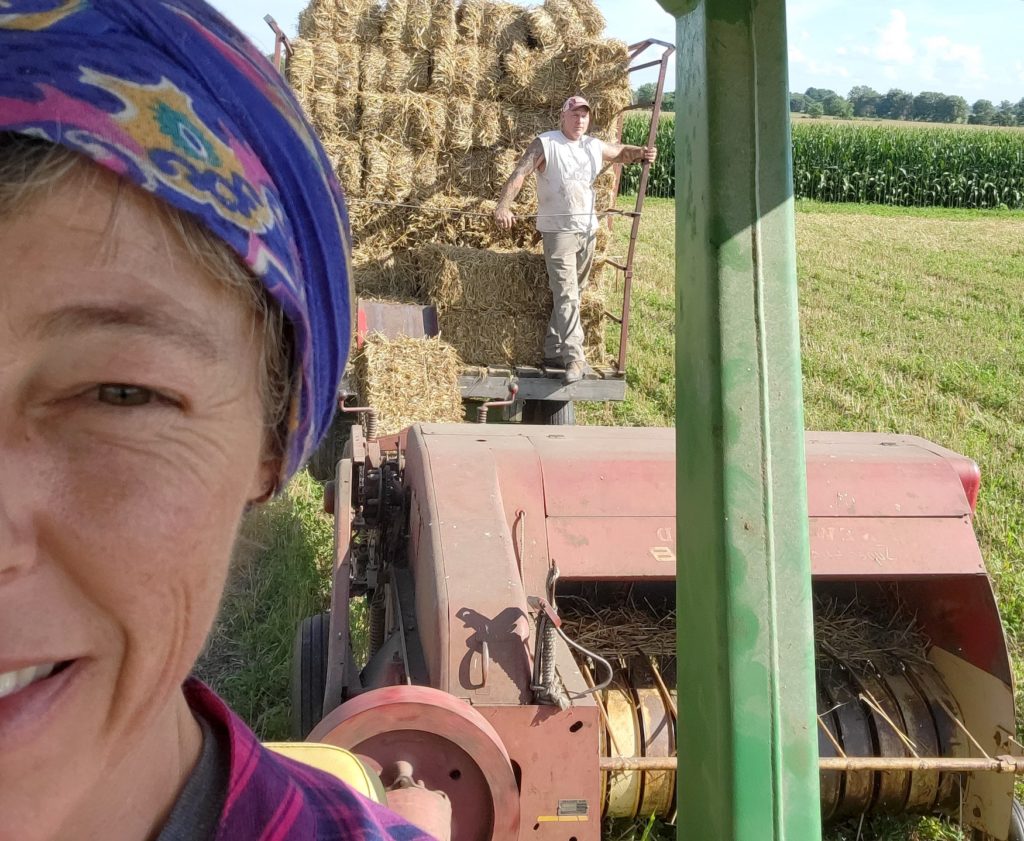
Andy & Dan making hay
Why is farming sustainably and humanely important to you?
How have the economics of farming changed in the last several years and how has it affected you?
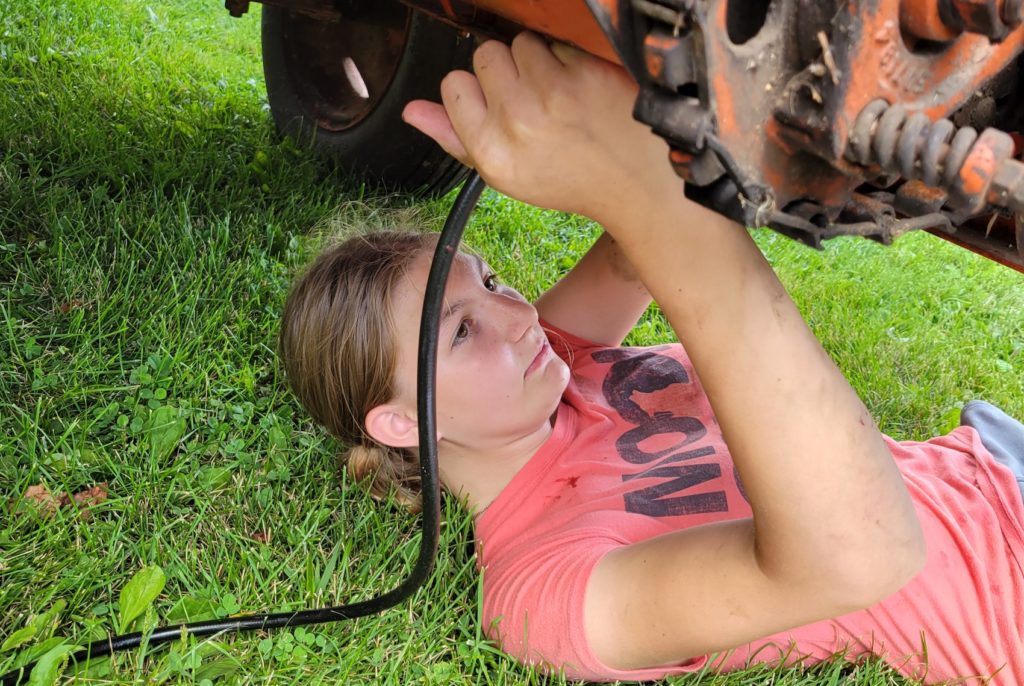
Lily, a summer intern at Hazzard Free Farm, greases the combine
What further changes are you anticipating?
Also, check out this article about the foreign purchases of U.S. agricultural land. As it mentions in the article, foreign ownership of U.S. agricultural land doubled from 2009 to 2019, according to U.S. Department of Agriculture (USDA) records, and policymakers have become increasingly concerned about foreign control of the U.S. food supply.
What are your views on extreme confinement and gestation crates for pigs?
I do not support the use of crates and here’s where the nuance comes: I try to imagine under what circumstances I would do that. If I was coming up in a generation that thought it was okay and never had the opportunity to see other systems, learn about them first hand, or talk to trusted teachers or mentors. If I didn’t have access, not only to information, on how to change, but that has to be matched with partners (often family) that want to change, a market and money to change my infrastructure and perhaps even the hogs I raise, because your potentially looking at changing breeds.
If you throw folks a rope oftentimes they will grab it. But I can tell you this… farmers are VERY reticent to take risks because every single day is a risk. The weather, the equipment, the animals and the ever changing array of taxes and laws and market manipulation. I would never sacrifice my farm on a new venture without being damn sure I had a crystal clear path. So, if we want folks to leave that [gestation crate] system we have to help build them a way out and that’s where you can come in by getting involved with lobbying FOR and giving folks a sure local market.
Check out what the “Food System Leader Caucus” that the Illinois Stewardship Alliance is hoping to create. From their site:
Are you helping change the food system in your community? Do you wish you could connect with other food system leaders across the state to share knowledge and resources, discuss issues, and work on solutions together?
The Food System Leader Caucus will be a space for non-farming members of Illinois Stewardship Alliance to:
-
- Meet and network with other like-minded food system leaders who share your passion for local food
- Shape a policy agenda that supports the local food projects and businesses you care about
- Get the latest insider intel on programs, policies, resources, and funding opportunities that can support or impact your business or project.
- Sharpen your skills as a leader of the local food movement
What are your views on the use of farrowing crates that house mother pigs during the actual birthing process?
Confinement operations are not healthy for animals, people, or nature. Do less [piglets] die, maybe, but we sacrifice that for dirty water, air, and contaminated soil. CAFO’S create antibiotic resistant strains of viruses. Why should you care? Because we are purposefully and forcefully putting them through the evolutionary olympics, while we eat processed foods and absorb endless chemicals from the majority of things we deem “essential” rendering ourselves immunologically compromised or devolving. I would argue that when looked at closely the meat is clearly not as nutritious and so then we further sacrifice our health.
Sows are protective of their young and generally good mothers, but during labor the sow gives birth in two waves. They have two uteruses that are long and thin and run forward in their bodies. As you can imagine it’s exhausting for them.
Our Sow Bandy had a litter of 17 and sadly she laid on some accidentally. She knew she had done it, after she did it, she cared, but refused to budge, she was exhausted.
A Sow will tolerate you fussing with her babies only so much, particularly when they are squealers. Sows get angry and they are big–400 to 600 pounds is not uncommon and when they lunge around, it’s dangerous, for her, for the piglets and for us. Any woman that’s given birth can attest to limited reserves of patience and understanding, during and after.
That said for some sows a roomy gestation/birthing pen with bumpers works perfectly. Sometimes sows are busy giving birth and can lay down with their hind end against a wall and when baby comes out they get suffocated or crushed. The bumpers keep the Sow from getting right next to the wall. We also use a hot box for the piglets, it’s got a light in it for heat, (baby pigs chill easily in cooler seasons) without one they cuddle up to mom and in those first few days she can accidentally lay or step on one.
Bandy was outdoors until about one week prior to giving birth, at three weeks the sows are ready for piglets to be weaned. Bandy started getting aggressive with them. Piglets are incredibly tough by day two or three. By three weeks old they are hard to catch and hold, they are very strong and muscular, and active. They nurse hard at three weeks and they have very sharp teeth. In CAFOs they cut [their teeth] back and dock their tails, but we don’t do all that.
So long story short, a three-week weaning is normal and natural and preferred by the sows I have dealt with.
What is your current slaughter process?
What do you think about mobile abattoirs and is that something you would potentially use?
What can consumers do to help improve the lives of all our farm animals?
How do you market and sell your products?
How can people shop with you/find you? Can they visit the farm?
